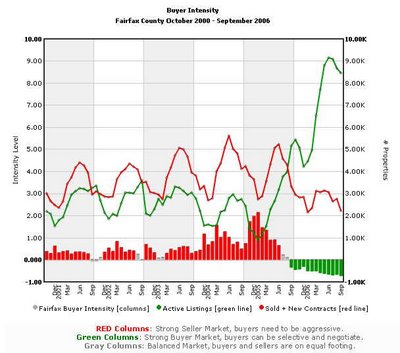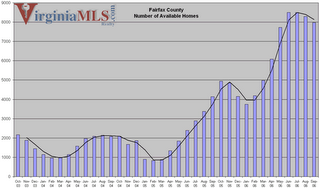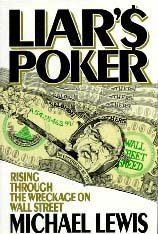NAR's prices and Greenspan

I had an epiphany this week. While taking apart NAR's latest national ad campaign, and criticizing it for it's ineffectiveness, I realized that I had completely misunderstood the ad.
You see, I had been operating under the assumption that the ad was designed to get people inspired to go out and purchase new homes. If that were true, this would go down as one of the all-time worst ad campaigns ever. But as much fun as it is to pretend that the reason the ad was so poorly designed was because the folks at NAR are idiots, the truth probably lies closer to Congress.
Just as Congressman, in an attempt to please all of his constituents, will go at great lengths to say nothing at all, NAR is stuck trying to please it's constituents (the Realtors). It's ad is certainly more aimed at convincing Realtors that it's working hard for them, than convincing people to actually buy homes. There's evidence of that in it's very title "It's a Good Time to Buy or Sell a House". As I wrote last time, they'd have done better to simply say it's a Good Time to Buy a House (since buyers are what they need in the market right now), such a message might have upset a number of Realtors representing sellers.
While their ad pretends to be convincing people to go out and buy, what it's really doing is screaming to the Realtors "Hey, we're on your side and working hard for you! Look! We support all of you and your varied positions!" You'd think that they'd please their Realtors more by actually working hard to drum up real buyers, and thus increase business. But like politicians, making a high-profile short-term gain that provides little lasting benefit is preferable to laying quiet groundwork for real gains. In other words, a real ad campaign might have upset some of their Realtors, so it's better to throw money at making Realtors feel good about themselves.
On with the review of NAR's new national ad:
PRICES OVERALL HAVE STABILIZEDThis is a classic bit of propaganda right here. Let's start with the considering the title and the first sentence. The title claims that prices have stabilized. The next sentence claims that sales are up. The two are only loosely related. Maybe the sales are increasing because more homeowners are finally dropping their prices! Trying to prove an argument with irrelevant information is called a red herring.
Contract for home sales in August are up 4.3 percent and the outlook is for home prices to increase next year.
They follow that up with some more intentional vagueness. The "outlook" is that prices are going "up"? Whose outlook? Why are they expected to go up? And up by how much? After all, if housing goes up by 1% and stocks go up by 30%, houses still increased in value, right? Also note that in a couple of places they actually provide a footnote to tell you where their data came from, but not here, indicating that their information is either made up, or considered unreliable.
POSITIVE OUTLOOKRed herring alert! Did you find it? What do you think "third-best year... for home sales" really means? I'll give you a clue, it's not about price or good deals. It's solely about volume. Basically they are claiming that they'll sell more homes this year than any other year, save two. And while that's tremendous news for Realtors, who love volume because it's more 6%'s to enjoy, that means nothing for people like you or me. NAR is assuring their members that there's still plenty of sales to go around for everyone. This number, by the way, comes to us courtesy of, you guessed it, NAR itself. NAR released a report claiming that the number of homes sold is expected to drop by over 8%, yet be the "third-best" on record.
Former Federal Reserve Chair Alan Greenspan recently said that housing prospects are looking up. "Most of the negatives in housing are probably behind us. The 4th quarter should be reasonably good, certainly better than the third quarter." According to industry estimates, 2006 will be the third-best year on record for home sales.
Now let's consider, for a second, the claim of a third-best year. Between 1939 and 1944, Gone with the Wind grossed about $9 million at the box office. This weekend Santa Clause 3: The Escape Clause grossed $16 million in 3 days. Does that mean that Santa Clause 3 is a better movie? OF course not. Just as the economy is inflating (and prices go up) every year, our population climbs as well, and we'd expect to see house sales rise. But most trade groups just ignore inflation, because it's much more uplifting to say ever year "More money made this year than last!".
In addition they use a tactic here called argument by authority. Simply put, that's just name-dropping. In this case it's Alan Greenspan, which is a great deal better than quoting, for example, Ben Affleck. But first you have to examine the credibility of the authority. Greenspan, while a prominent economically figure, presided over two major bubbles, first in stocks and then in housing. He also claimed in 2005 that:
"Relying on policymakers to perceive when speculative asset bubbles have developed and then to implement timely policies to address successfully these misalignments in asset prices is simply not realistic."In other words, he had no idea the bubble were coming, and no idea how to fix them. In his opinion, such speculation is impossible. Yet he's being quoted as claiming the worst is behind us? Let's assume for a minute that he knows what he's talking about (because, to be fair an honest, most people think Greenspan was a pretty good chairman of the Fed). If what he says is true, then.... well we need to look at what he says. "Most of the negatives... are behind us". There's a glowing review for you.
Now look at the overall pattern. They start with the name dropping, Good 'ole Greenspan. But they don't want to end on him, since his wording wasn't terribly good (just not bad). So they follow it up with a strongly positive sentence that is both conjecture AND unrelated. So when you finish reading the paragraph, what will you remember? Greenspan and 3rd-best year.
Writing an ad rarely just happens. A tremendous amount of work goes into each word, much less each paragraph. If you think it's simply a coincidence they put Greenspan's name and third-best year into the same paragraph, when they're not very closely related, think again. It's 100% intentional.
Today we've talked about multiple techniques of propaganda, but I want to revisit the red herring for a second. As with all sales techniques, you have to craft your message for your audience. But I think the red herring can backfire more easily than the others. When you try to use a red herring (for example: "Tomorrow will be sunny because it didn't rain today!"), and it's noticed by the audience, it's easy for people to simply discredit anything else you say without a word. Of the many tools of sales, the red herring is one of the most risky, in that you can easily turn your audience off.
Name dropping, on the other hand, is a relative safe way to promote a sale. If someone tells me that Ben Affleck voted Democrat, I can easily recognize that it's name dropping. However, that doesn't discredit the person, I simply brush the information off as uninteresting. The reason name dropping doesn't offend while a red herring can is simply a distinction of fact.
Ben Affleck voting Democratic is a fact (at least in our hypothetical example). Whether or not it sways me, I still accept it and continue to listen. A red herring is a false fact. You make an incorrect correlation, and when an audience catches it they will be more interested in finding further errors than in hearing what you have to say.















